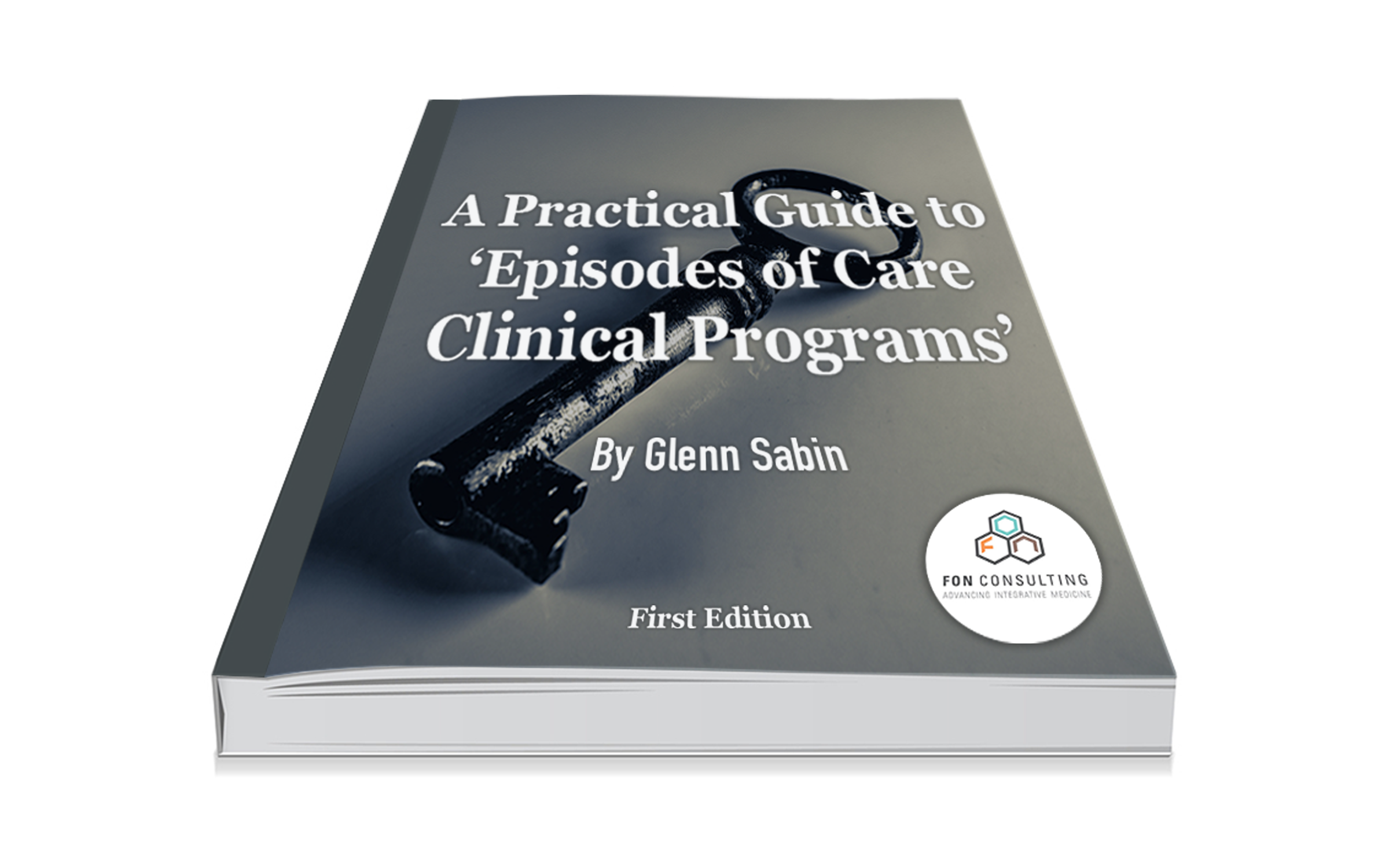Leveraging Medical Savings Accounts for Integrative Health Products and Services
By Glenn Sabin

You possess a powerful tool to enhance your business and expand your influence and goodwill for the good of your patients and customers. It’s called a medical savings account. Are you leveraging this tax-deferred tool?
I have always wondered why integrative healthcare practices and businesses aren’t savvier at promoting the economic attributes of health savings accounts (HSA) and flexible savings accounts (FSA) to their current, and prospective, patients and customers. After all, what consumers would want to spend more than is absolutely necessary for medical care, or other products that would otherwise qualify as a medical expense—and for which pre-tax dollars can be used?
As a practice owner or nutraceutical company, why would we not shout the benefits of medical savings accounts from the rooftops—a bona fide ‘discount’ sponsored by the IRS?
For some, depending on tax bracket, we are talking upwards of 40% in pretax savings. That’s real money. So is the 20% penalty assessed to improperly submitted, non-qualified medical expenses.
Healthcare consumers want to spend less for high quality medical care and products. Medical savings accounts allow service providers and dietary supplement manufacturers across the integrative health ecosystem to benefit—because when their patients and clients are getting more value for their hard-earned money, everyone wins.
[Note: HSA and FSA are popular medical savings accounts that are similar in several ways. But there are some distinct differences. Here is an excellent HSA versus FSA primer.]
Health Savings Accounts 101
HSAs allow individuals and families the opportunity to pay for qualified medical expenses using pretax dollars—essentially tax-free purchases.
The 2019 annual individual contribution limit to an HSA is $3,500. The annual family contribution limit is $7,000. Setting up an HSA is super-easy and inexpensive to maintain, even as an individual (as opposed to an FSA through an employer). I’ve had one for years. Mine costs about $25 per year in service fees.
So why aren’t more U.S. consumers taking advantage of medical savings accounts? And why are direct pay, cash-based integrative and functional medicine practices—and other businesses within the integrative health ecosystem—not more effective at promoting and educating their patients and customers on the tax advantage of using these accounts?
We’ll start with direct pay, and various concierge practice models, then dive into dietary supplements.
Direct Pay/Cash-Based
With à la carte, pay as you go, no-membership models, the tax laws are unambiguous. If you are delivering clinically-indicated care, and charging a fee specific to each patient’s clinical engagement, and properly capturing these details, these services are qualified medical expenses so long as the individual has an HSA-qualified high-deductible health insurance policy.
Concierge Practice Models
This is where things get trickier.
Excerpts below are from the article ‘Are Concierge Physician Fees Payable Tax-Free from Health Savings Accounts and Reimbursable Health Flexible Spending Accounts?’ by Galina P. “Allie” Petrova, JD.
Petrova, an expert in tax-deferred medical spending accounts, is the director of the Petrova Law PLLC, in Greensboro, NC. The full article with numerous citations, originally published by the American Bar Association, appears here.
Characterization of Concierge Physician Fees
While the business model may vary, concierge physicians typically charge a concierge fee ranging from a small monthly membership fee to annual retainers in the thousands. Ordinarily, concierge subscription fees and retainers are charged for access and convenience, regardless of whether medical services are provided. Yet concierge fees may cover routine medical services, and additional fees may accompany medical services provided à la carte.
The nature of the service determines whether a concierge fee is a qualified expense for “medical care” and eligible for reimbursement. Only the portion of the fee which is associated with the medical service, and not otherwise covered by insurance, is eligible for coverage. If the fee is only for non-medical services or the right to preferred access to concierge medical care, then the fee is not a qualified medical expense.
Concierge physician fees encompass the following categories:
Access fees. In this case, the patient subscribes to a concierge physician practice solely for preferred access to medical care. When medical services are provided, additional fees would apply. While the subscription portion of the fee is paid for preferred access and is ineligible, any amount paid for medical care would be treated as a qualified medical expense.
Retainer fees. These are charges for special treatment and perks, including 24-hour availability of a physician, special waiting rooms, newsletters with wellness recommendations, minimal or no wait time when scheduling appointments, longer and more comprehensive appointments and house calls. Retainer fees are billed annually and apply whether or not medical services are provided. These fees are paid for non-medical services and convenience and so are not qualified medical expenses.
Membership fees. Similar to retainer fees, these fees cover special treatment and perks and are payable whether or not medical services are provided. Unlike retainer fees, membership fees may offset part of the cost of medical services. Membership fees are billed monthly, in addition to copayments, deductibles, and other charges for office visits. These fees are similar to insurance premiums in that they are paid to cover contingent future expenses, and insurance premiums cannot be covered with HSA or FSA funds. Therefore, neither can membership fees.
Fees for diagnostics, prevention and annual physicals. These fees normally qualify as expenses for medical care and may be paid in advance, on an annual basis, or when the services are actually received. Annual physical exams qualify as medical care, and certain diagnostic and preventive medical services qualify, as well. If the fees are paid in advance, they may become reimbursable once the physical or other medical services have been performed because that is when the medical character of the expenses is established.
Documenting Concierge Fees for Medical Care
The patient must have supporting documents to prove that medical services were received and payment was made for an eligible medical expense. Ideally, the concierge physician practice would provide details on the fee and indicate whether the patient has received medical services or merely convenience, concierge access, and non-medical services. In addition to the patient’s name and dollar amounts, itemized billing statements should indicate the type of expense and the date of service.
IRS’s Silence
The IRS has not issued interpretive guidance on the eligibility of concierge fees as medical expenses. In an IRS Information Letter, which is only advisory and has no binding effect, the IRS faced the issue of whether a concierge fee was reimbursable from a Medical Reimbursement Account (MRA) or Healthcare Reimbursement Arrangement, which is very similar to an FSA.
The patient paid an annual medical concierge fee for “access to physicians, a comprehensive annual physical, minimum half hour doctor visits, and access to dietitians and exercise therapists.” Whether intentionally or not, the IRS did not address the issue of whether the fee would qualify as an expense for medical care. Instead, the IRS letter outlined the tax rules and alluded to an MRA plan’s discretion to set its own rules to determine which expenses are reimbursable and which ones are excluded from coverage.
Restricting Eligibility of Medical Expenses
All medical expenses under section 213(d) are eligible for payment or reimbursement from HSA funds, and employers cannot restrict the eligibility of medical expenses under an HSA. However, even if an expense qualifies as for “medical care,” the tax law does not require FSA plans to reimburse. Employers have discretion to limit reimbursement to only a subset of eligible medical expenses listed in the plan and exclude others, whether or not these expenses would otherwise qualify under the Code.
~~~~~
Dietary Supplements
In the spirit of transparency, I began drafting this post five months ago, and then put it aside to work on other pieces—because this important subject is complex and rather unclear. There is an incredible amount of nuance and gray area when it comes to qualified medical expenses and IRS tax code guidance on HSAs/FSAs. And the subject of dietary supplements is even more daunting.
Dietary Supplements as Qualified Medical Expense
On the one hand: dietary supplements are not designed to treat, diagnose, prevent, or cure diseases. On the other hand: dietary supplements are designed to give patients the vital substances that the body needs for normal functioning, and as such they may prevent or reduce certain diseases.
Supplements for weight-loss, everyday wellness and health maintenance—such as multivitamins—are not eligible as qualified medical expenses.
Prenatal vitamins are an exception, as they have been proven to prevent birth defects and promote healthy development of the child. However, in general, dietary supplements must be prescribed for a specific medical condition or nutrient deficiency, such as vitamin C for scurvy, or the combination of calcium, vitamin D and potassium for osteoporosis.
Enjoying this article? Subscribe and get our latest, delivered straight to your inbox.
Qualified Dietary Supplement ‘Agents’
The actual lists of qualified dietary supplements I was able to find were outdated. Over at www.irs.gov, a search for the latest guidance came back ‘empty’. It’s as if the IRS is playing this one real close to the vest.
I also reached out to an editor at a major trade publication in the nutraceutical space, but did not hear back before putting this post to bed.
[Access this (almost) exhaustive list of qualified and non-qualified over-the-counter products and provider services, including which ones require a prescription.]
Prescriptions and Letters of Medical Necessity
A medically indicated ‘prescription’ on a prescription pad is not enough to ensure compliance with tax law as a qualified medical expense.
Below are some examples, some a bit far afield but instructive nonetheless, to help you start thinking about the utility of having your dietary supplement recommendations backed up with, at minimum, evidence-informed content and citations to support their use for specific conditions and pathologies.
If Nestle and Abbott can create Letters of Medical Necessity language to support their so-called nutritional drinks such as Boost and PediaSure… you can, too.
You can be better positioned to support your patients and clients for coverage through their medical savings plans. The following examples—generic and more specific to nutrition therapy and individual agents connected to specific conditions—can get you started.
Improving the Physical and Financial Health of Patients and Customers
It is simply good business to invest the requisite time and energy to identify that the clinical services you deliver, and supportive products you recommend, are tax qualified medical expenses. Doing so supports the financial health of patients and customers, while supporting your practice or business through reduced-cost goods to the end user. It shows you care.
Work with a tax or legal professional with expertise in this area. It will be well worth the investment. Once this is done, the financial benefits of medical savings accounts, and how they specifically apply to your situation, should be overtly and consistently messaged to your patients and customers. Put simply, this is a significant financial opportunity in which ‘all’ can participate.
Takeaways
- Medical savings accounts benefit patients/clients and practices/businesses alike.
- As integrative and functional concierge medicine becomes more popular, and greater out-of-pocket healthcare responsibility leads to higher use of HSA and FSA, understanding these rules to ensure compliance is essential.
- Consider incorporating clinical services into membership programs in ways that also create HSA/FSA-qualified medical expenses.
- Own the responsibility of learning how medical savings accounts work, then apply it to your standard operating procedures, to help guide patients/clients.
- Effectively market and message the attributes of HSAs/FSAs to your patients/clients so that you can save them money using tax-exempt dollars… with the potential of selling higher volumes of useful products and services.
Is your integrative health business or organization positioned to ensure its long-term sustainability and growth? Contact FON for a 30 minute exploratory phone or Zoom consult to discuss your specific goals, opportunities, and challenges.
About FON
FON is a leading integrative health and medicine business development and strategy consulting firm. FON specializes in custom solutions for growing patient volume, developing programs, and increasing product sales. Our practical business models are driven by innovative marketing, clear messaging, and customer engagement via branded storytelling.
Photo credit: www.bigstock.com/Robertindiana

Read Glenn’s story.





















